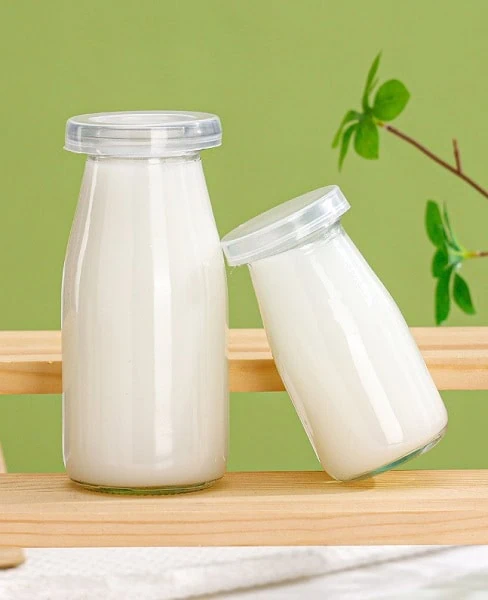Yes, glass milk bottles can save you money over time, especially if you value long-term sustainability and are part of a bottle-return or reuse program. Here’s a breakdown of how choosing glass over plastic or single-use options can benefit your budget:
Reusability Reduces Replacement Costs
Glass milk bottles are designed for repeated use, often in bottle-return systems where they’re collected, sterilized, and refilled. In contrast, single-use plastic bottles are discarded after one use, leading to constant repurchasing and more waste. By reusing glass bottles, you reduce the need for new bottles, cutting down long-term costs. This is particularly effective if you participate in a deposit-return system, where you get a refund for returning bottles, which can help offset your initial costs.
Durability Extends Product Lifespan
While glass milk bottles may have a higher upfront cost than plastic, they offer a longer lifespan. High-quality glass bottles are durable and can withstand many cycles of cleaning and refilling without degrading, cracking, or warping. If handled carefully, they can last for years, making them a more cost-effective choice over time compared to plastic, which often needs frequent replacement.
Avoiding Waste Fees
If you’re in an area where waste disposal is regulated or where fees are charged for excessive waste, using reusable glass bottles instead of single-use plastic can help reduce those costs. Because glass bottles are durable and can be reused or recycled, they don’t contribute to the volume of waste as much as plastic bottles do. This makes glass an economical choice for both households and businesses looking to reduce waste expenses.

Fewer Hidden Costs from Plastic Leaching
Plastic bottles can sometimes leach chemicals into the milk over time, especially if exposed to heat or sunlight. Although invisible, these chemicals may alter the milk’s quality, potentially affecting freshness and taste, which can lead to increased spoilage and wasted milk. Glass doesn’t have this issue, helping to maintain the quality and longevity of milk, which can reduce the frequency of replacing spoiled milk.
Lower Energy and Recycling Costs in Bottle-Return Programs
In many areas, bottle-return programs allow for glass bottles to be returned, sterilized, and reused, which is less energy-intensive than recycling single-use plastic bottles. By participating in these systems, you indirectly contribute to lowering the overall costs of production and recycling, as reusing glass consumes significantly less energy than manufacturing new bottles or recycling plastic. Many consumers and businesses find this an attractive, cost-saving alternative.
Incentives from Dairy Suppliers
Some local dairies and suppliers offer incentives for using glass bottles, such as discounts, membership programs, or deposit refunds for bottle returns. These programs make glass bottles more affordable over time, as they reward you for participating in a sustainable, reusable system. Discounts for loyal customers who use glass bottles can further add up to significant savings.
Conclusion
While glass milk bottles may initially seem more expensive than plastic options, they often save you money in the long run by offering a durable, reusable solution. From reducing replacement costs to avoiding waste fees and health-related expenses, glass milk bottles provide both economic and environmental benefits. For those looking to balance sustainability with budget-friendly choices, glass is a strong, cost-effective option that pays off over time.

